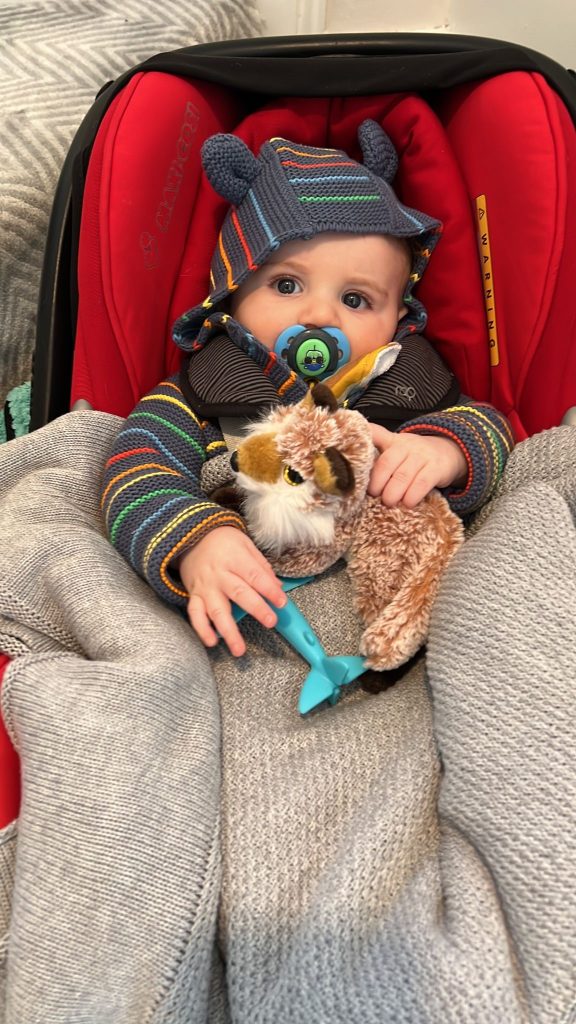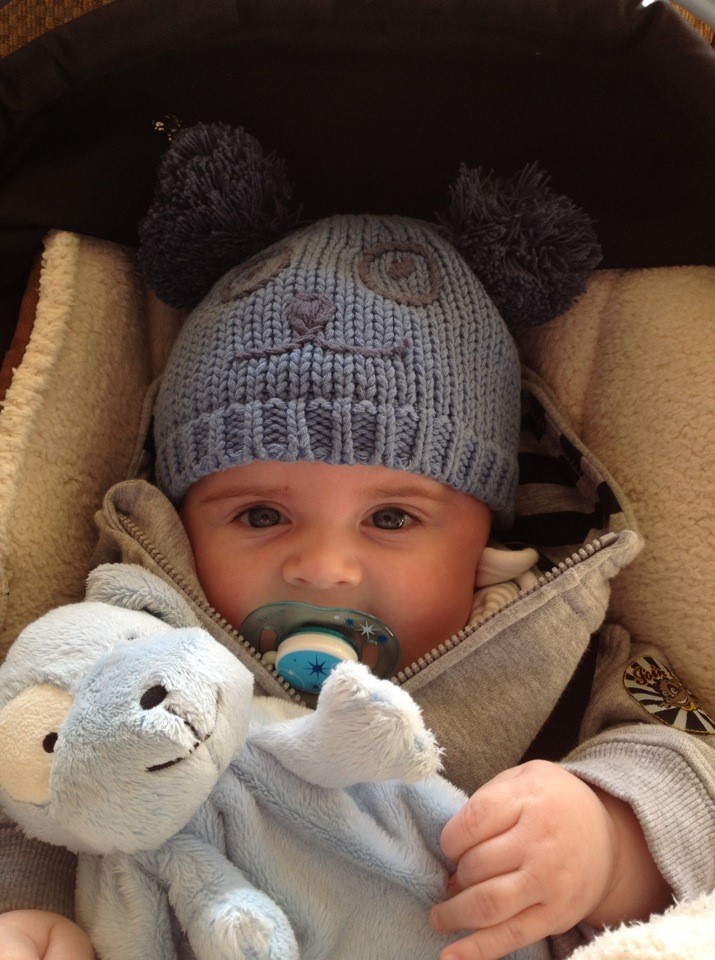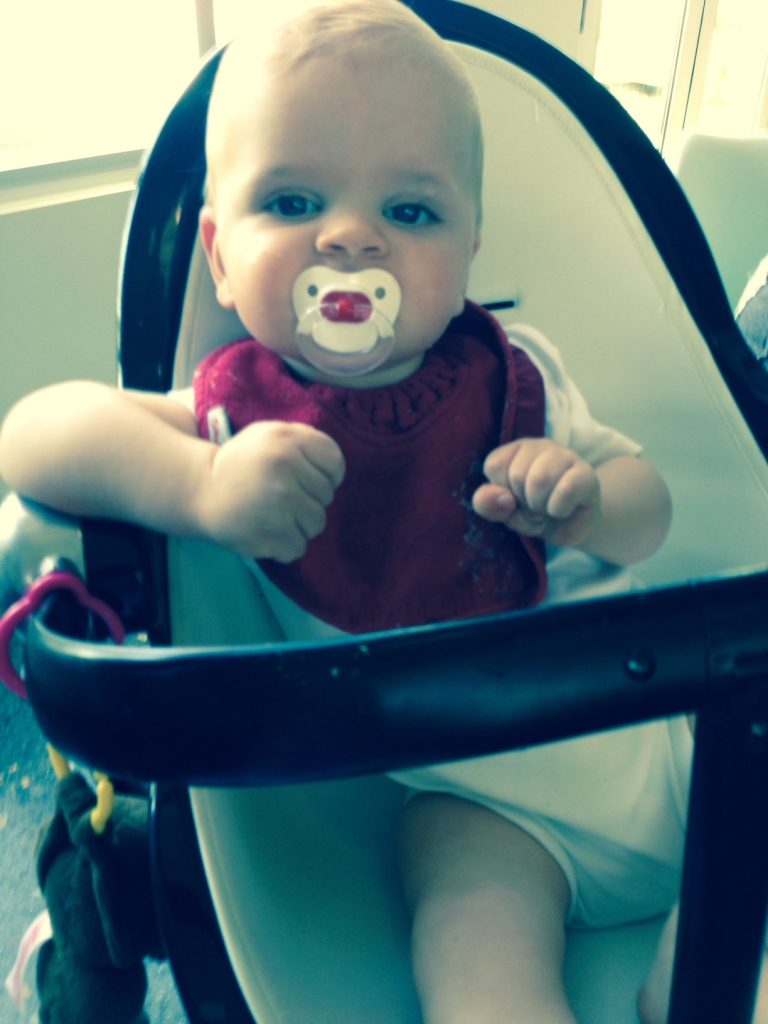If you have read my baby book you will be aware I am very much against a baby having a dummy as a sleep aid as I believe dummies are a negative aid. The reason I am against the use of dummies is that a baby with a dummy tends to have delayed speech and wakes more often in the night.
There seem to be three main reasons why a baby with a dummy wakes more frequently than one without. First, the baby often finds it harder to achieve a deep sleep, as the intermittent sucking seems to disturb his sleep pattern. Second, a baby who goes to sleep with a dummy will wake up expecting to suck, but if the dummy has fallen out he will shout for you to come and put it in again.

Unfortunately, by the time you go in to replace the dummy, your baby may be so wide awake that it is hard for him to get back to sleep. Third, I believe the constant sucking tricks the body into thinking there is food coming, which causes your baby to digest his food too quickly and makes him hungry sooner than a baby without a dummy.
But now we are talking about toddlers, not babies, so are dummies a bad thing in toddlerhood? I often come across toddlers who have a dummy and sleep well. Why is this?
I believe this is because the parents of these toddlers did not fall into the trap of getting up at night and popping the dummy back into the mouth of their protesting baby. When I come across a toddler who sleeps well with a dummy I find he is not actually using the dummy as a going to sleep aid.
These toddlers do have a dummy in their mouth when they are first put into bed, but it falls out and the toddlers go to sleep rubbing their bedding, a comforter or their own hair, for example. It is my opinion that these toddlers never used the dummy as a sleep aid and so have not developed sleep problems.
In these cases I talk to the parents about my concerns about dummy use and then it is up to them whether they take it away or not. In most of these cases taking the dummy away is easy because it is not actually the sleep aid.
My chief concern about leaving a toddler with a dummy is that dummy use can interfere with speech development. If you watch a contented toddler lying in his cot or bed, he will be looking around and practising his word sounds and any words that he has already learnt to say. A toddler with a dummy, however, will be concentrating on sucking and will not be looking around or talking.
Also keep in mind that manufacturers advise you to never leave your child unattended with a dummy in case he chews the top off and swallows it or chokes. The chance of this occurring is greater in toddlers than babies as they have more teeth. Another problem with unsupervised dummy use is that toddlers like to push the entire dummy into their mouth and it can get stuck.
My next concern is that dummies harbour germs and children with dummies are often prone to repeated ear infections, which can cause high fevers and the possibility of febrile convulsions.

My last point is that if you leave your toddler with his dummy, at what stage will you take it away? Research shows that the younger a child is when you remove the dummy the easier the transition is, so the sooner you remove it the better.
The most important thing you can teach your toddler is how to self-settle, enabling your toddler to drift from one sleep cycle to the next without your help or the aid of a dummy. Discouraging dependency on any aid at bedtime can be difficult initially but it is well worth your while in the end.
If your toddler is catnapping in the day and waking in the night, then the dummy is acting as a negative sleep aid and you need to remove it.
First, I recommend you follow my world-famous bedding guide and then adhere as closely as possible to the proven 24-hour routine for your baby’s age for a minimum of four days before you attempt to take the dummy away.
Then on the fifth day, at the first sleep of the day, remove the dummy and follow my settling guide for your baby’s age. You should throw all her dummies in the bin to ensure you are not tempted to use them again – even outside sleep times. Giving a baby their dummy outside sleep times will only cause confusion.
If your baby has a dummy but you rock, pat or feed your baby to get her to sleep, just take the dummy away on the first day of the routine, then take the other aid away on the fifth day.
The reason for this is if your baby was really using the dummy as a sleep aid you would not need to help her with the second aid as well, so your baby is unlikely to be dependent on the dummy to go to sleep.
Read more: Tizzie’s advice on dangers of dummy use
